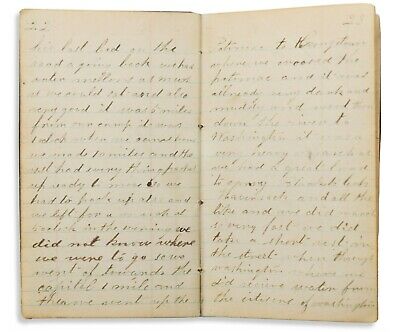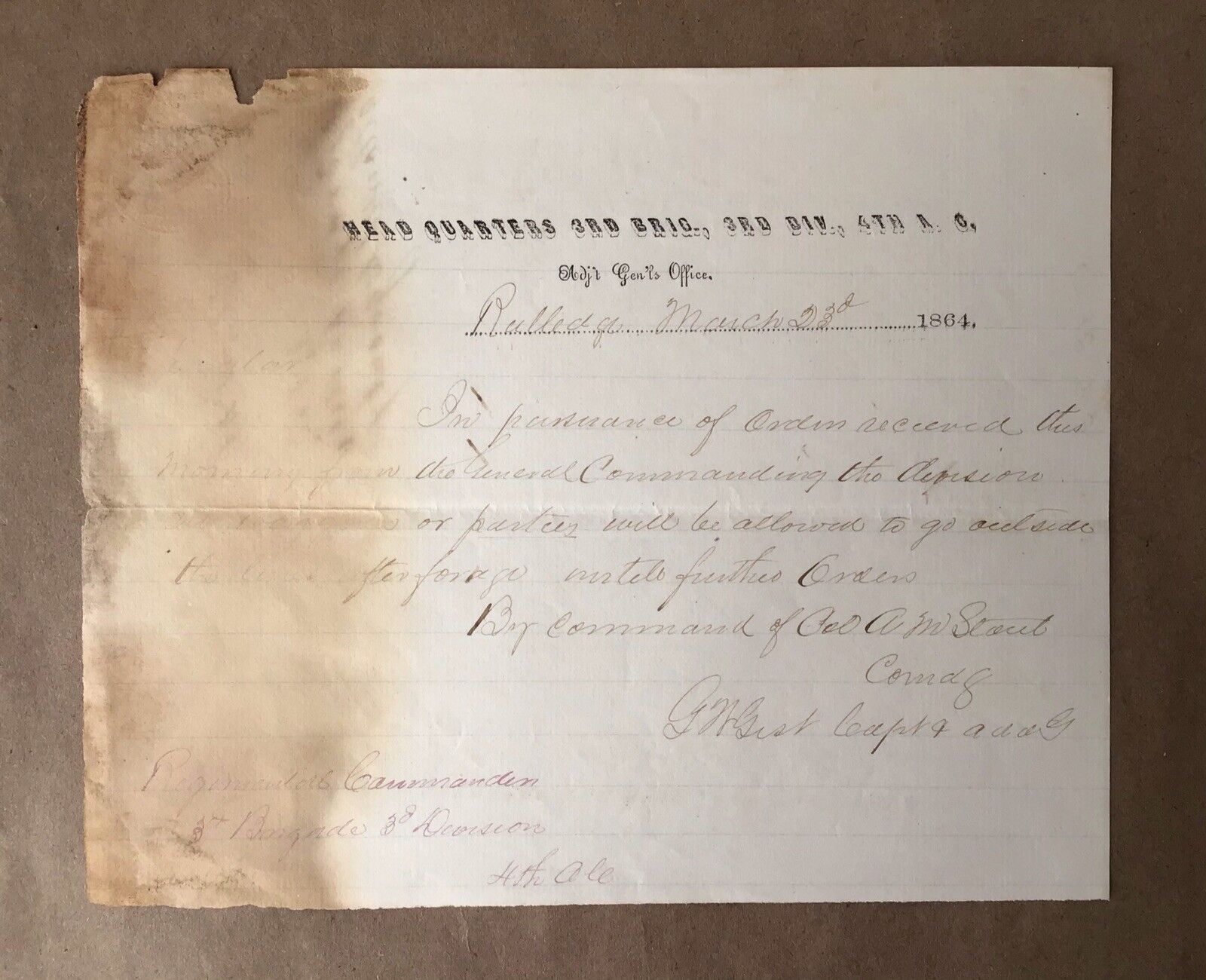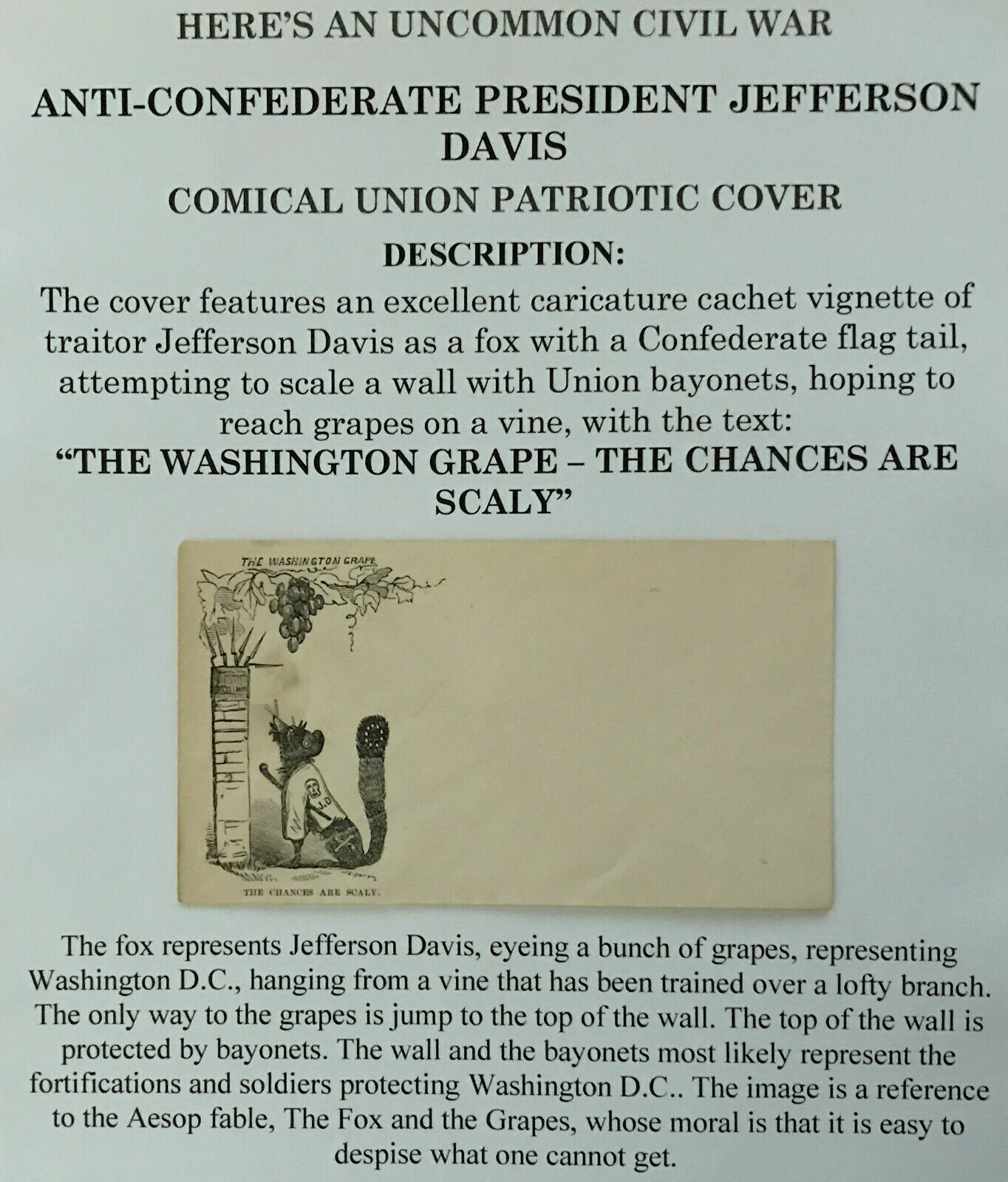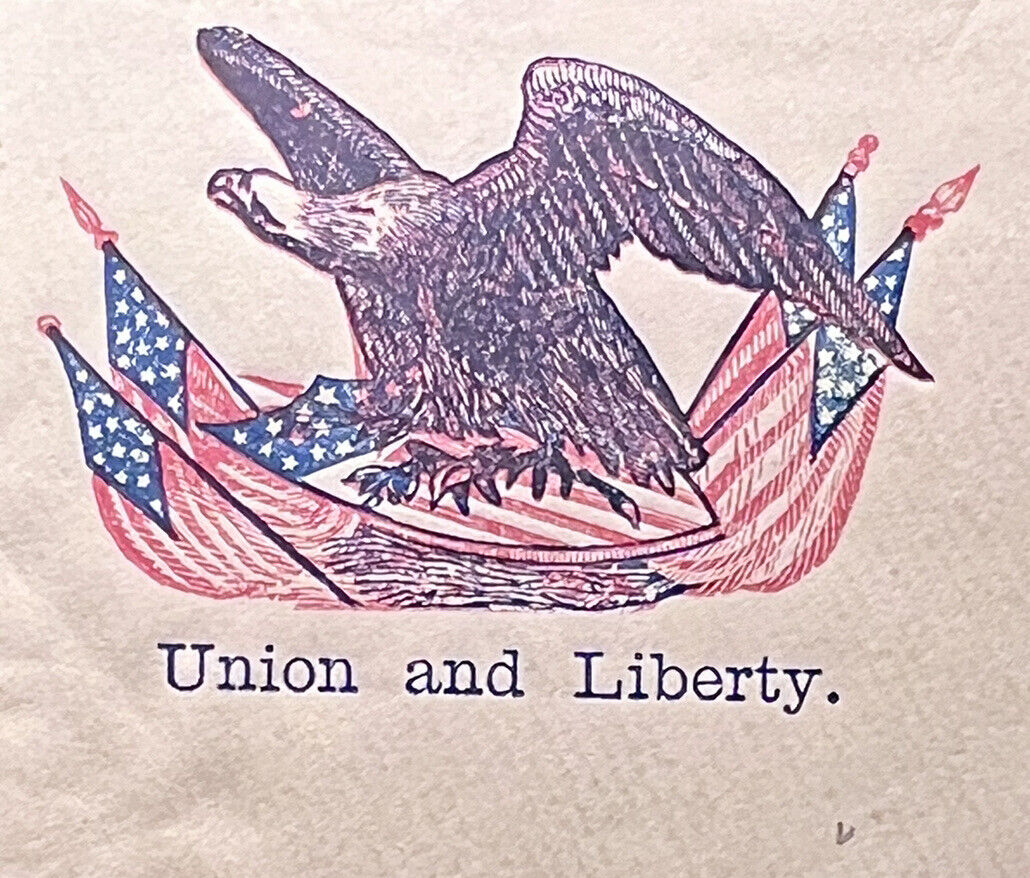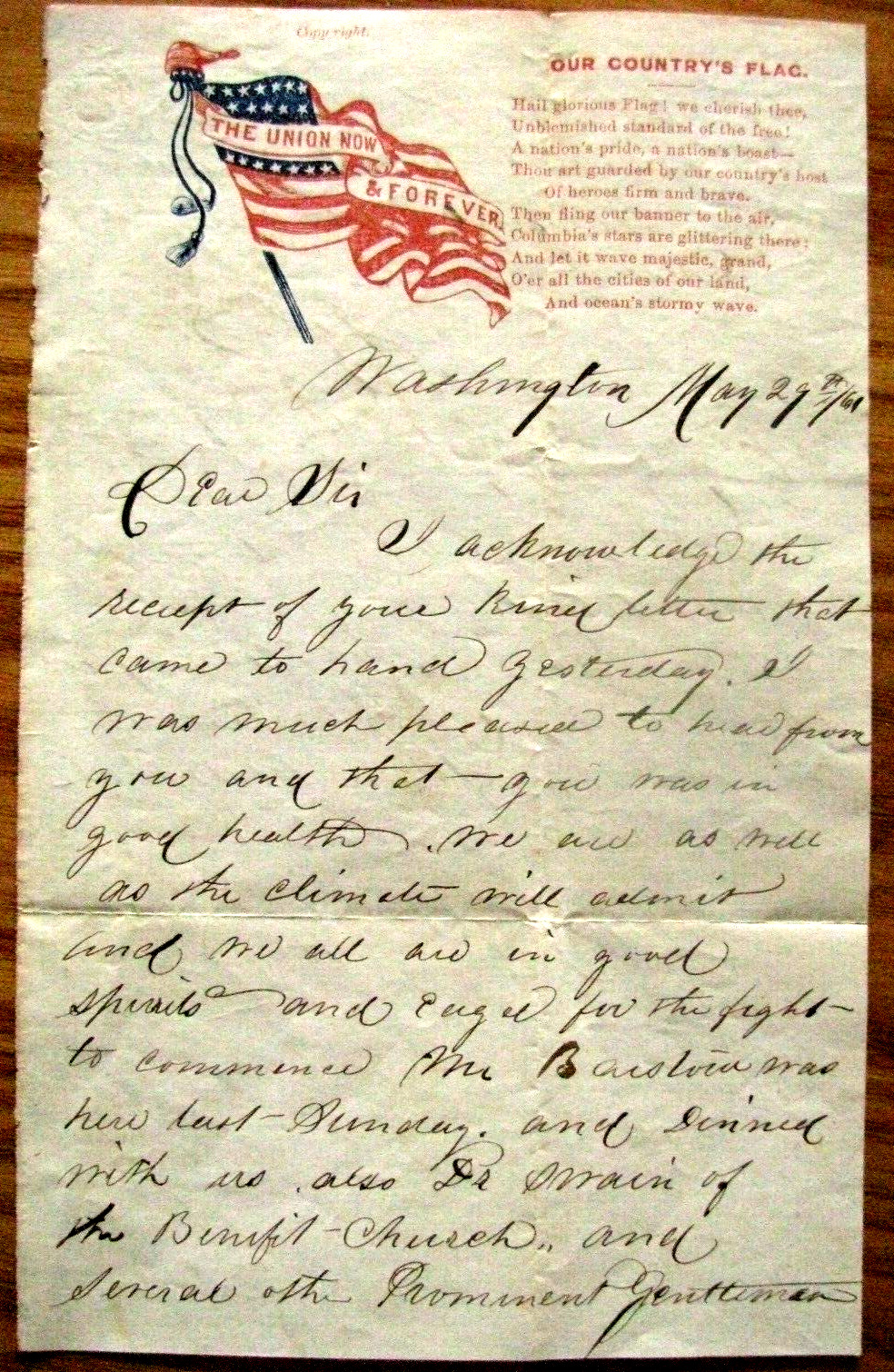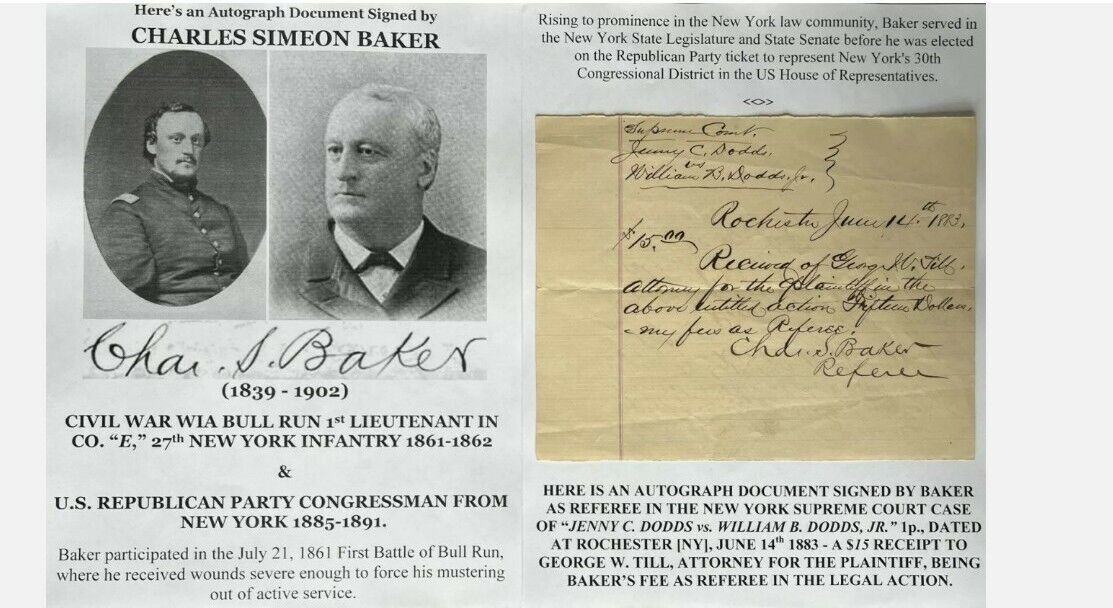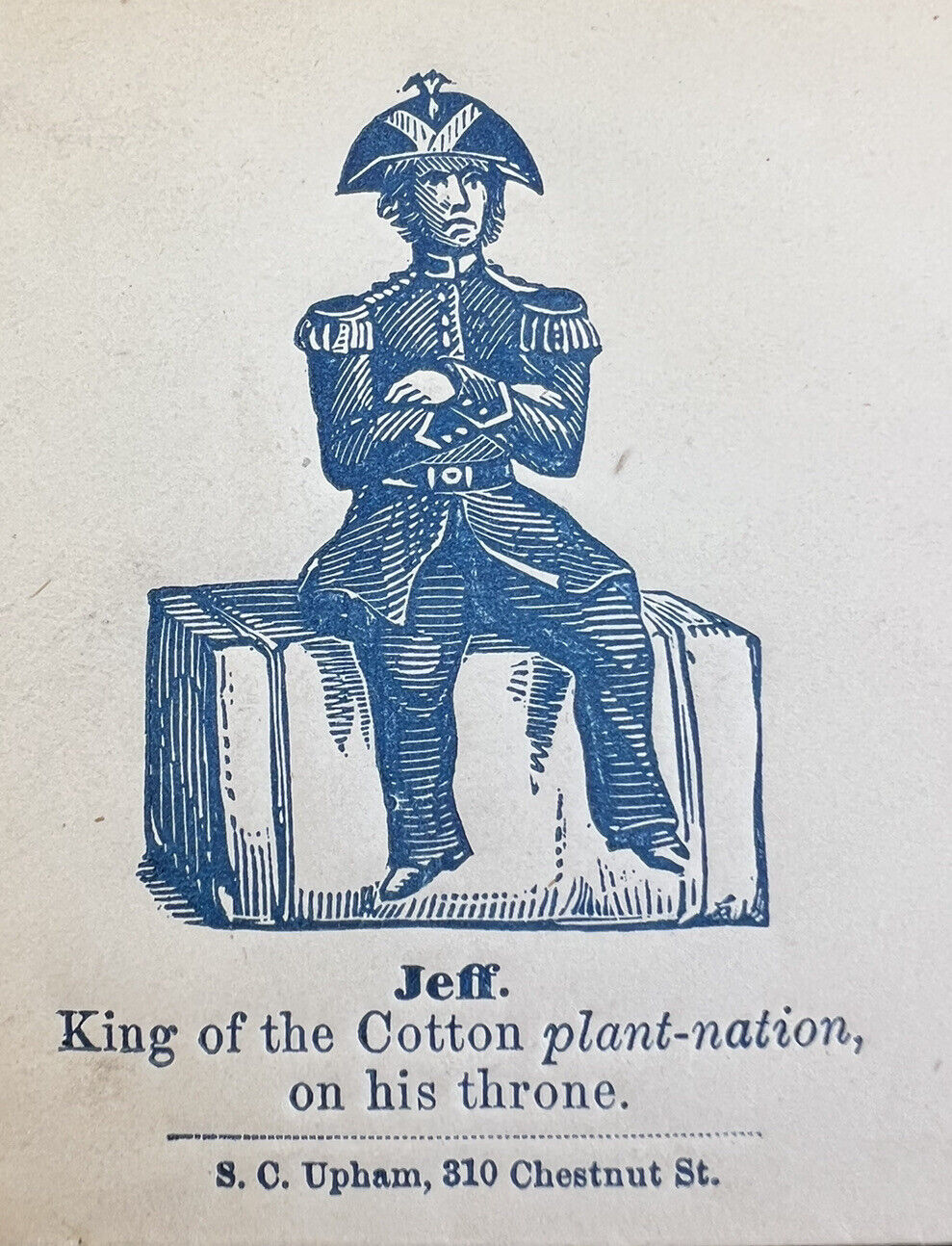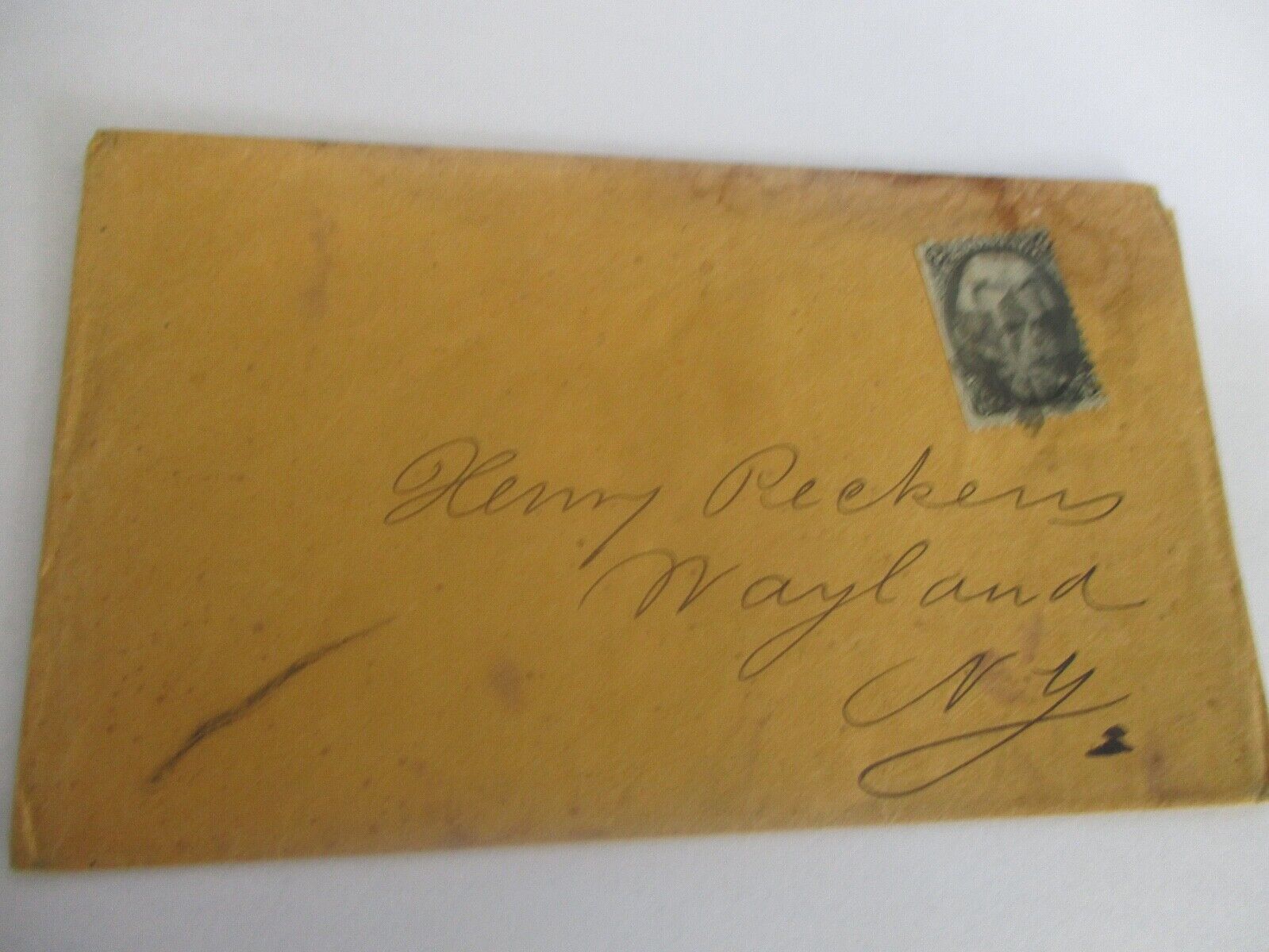-40%
47 Letters 2 Journals 129th PA Inf Civil War Lincoln Assassination Booth Autopsy
$ 7920
- Description
- Size Guide
Description
Incredible lot of two journals and 47 letters by Henry Washington Landes, a soldier in the 129th Pennsylvania Infantry, Co. C, who writes about the Battles of Fredericksburg, Antietam and Second Bull Run in his correspondence. However, more interesting perhaps is Landes' service as U.S. Marine in 1865, where he not only guarded President Abraham Lincoln's body after the assassination, but was one of a select few Marines tasked with guarding the assassination conspirators, and also the body of John Wilkes Booth aboard the USS Montauk. Landes was even one of three eyewitnesses present for Booth's autopsy on 27 April 1865, stating that Booth was beheaded during the autopsy. Heretofore - since the autopsy report was brief, it was not officially recorded that Booth was beheaded and instead has been assumed that his head became detached (as reported during the 1869 inquest) as a result of his gunshot wounds. As reported here, however, it appears that the autopsy doctors removed the head in order to retrieve the bullet lodged in his upper spine.Prior to serving as U.S. Marine, Landes enlisted in the 129th Pennsylvania Infantry, mustering into Co. C on 12 August 1862 for nine months of service. Landes keeps dutiful record of his service in the 129th, writing both in his leather journal, and also in letters home to his sister Emma. He writes in a letter home on 18 August 1862 that a Rebel tried to "poison us by putting poison in the water…We belong to C 129 Penn Infantry, Colonel Frick and our Captain is Taylor…" In his journal on 31 August 1862 he mentions a skirmish with the Rebels just before the Second Battle of Bull Run, "…we left at 5 o'clock in the morning, without breakfast, for to guard an ammunition train to Centerville where they were fighting at that time…We went about 4 miles back in some woods. We had the intention to stay overnight. We stacked our arms. It was 9 o'clock in the evening and we were all tired as we had marched 20 miles that day…The Rebels began to shell our train, we thought not safe and left a couple miles back. Went in a field for to stay overnight as we could go no further. It was then about 10 o'clock in the evening. We felt like a drove of cattle, tired and wet…"
In a letter home on 1 September 1862, Landes describes the devastation following Second Bull Run, "…We went 18 miles towards Centerville where there is a large force of Rebels…Every once a while a dead horse in the road which does stink awful. Uphill in the mud sometimes, one step ahead and two back. Every once awhile we meet a lot of prisoners of the Rebels, on droves about all together 1,000 which look like travelers. They have no uniforms at all. They are all mixed together and look very tuff and also rough but they are small soldiers…they are Rebels indeed…We were just ready for to lay down when the cannons began to sound and the shells began to fly. The Rebels fired into a train of wagons, We thought not safe, our men, so we went in the dark about 6 miles back into a field where we slept till morning…all the hospitals and all the houses in Centerville were full of wounded men of ours. It was the most awful day I ever seen in my life…"
On 11-12 September, he describes burying a fellow soldier, "On the 11 of Sept. one of our men died at Fairfax Seminary. His name was Thomas Engle. On the 12 of Sept. 20 of our men went to bury him, which I was one. We came there at 10 o'clock, then we buried him according to sign arrangements. Rev. P from Bethlehem held the sermon. I helped to fire the 3 loads over his last bed…It was 5 miles from our camp it was 10 o'clock when we came home. We made 10 miles and the rest had everything packed up, ready to move."
He next reports on Antietam, where the 129th helped in the last hours of the battle. In a letter dated 22 September 1862 he writes, "…the next day was Sunday and started early at 4 o'clock and marched every day till the 20 of the month. 20 miles a day till we came to Frederick City, Maryland. Where we march all night till we came to the battlefield. Which they had on the 16 and seen that place. It did look awful to look at, but I was not at the place where they had men piled up like wood, it was 12 a mile from us and I did not like to see them, but I seen some lying around, yes we seen hard times. This short time we are in service…" And then in his journal, he writes, "It was about 7 o'clock in the evening of the 17 of Sept. We heard all day firing and they had a great battle at Sharpsburg, Maryland. We were 24 miles off and it was already dark and we did march far through the week. Our colonel came and said if we were willing to do it for our country and we all cheered yes. So we went up and down hill, fast and slow, smooth and rough, dark and rainy. Marched all night…We slept near the enemy on the battleground…On the morning of the 19 of Sept…I was taken as pioneer, and had to carry an axe besides and to get ahead of the brigade to make road for the cannons if necessary…We went over the whole battlefield and it was awful to see it. We took a short rest at Sharpsburg. So we went around to see the houses were all battered. Horses and men laying at the houses and in the streets, hanging on the fences and so on. We took our night rest in a field and were in line before day but no attack…We went to the woods on the morning of the 20 of Sept. and began to shell them completely but no reply with cannons. Some musketry and a good many men were killed and wounded that had been ahead of us. The report was that the Rebels were all over the Potomac…"
Shortly after Antietam, Landes reports being visited by President Lincoln, "…On the 3 of October we were taken out the division and were all reviewed by old Honest Abe. The President, and he had a good looking staff with him. He was on horseback and dressed very plain black…" He continues, "On the 4th of Nov…We captured about 20 horses that day. We took them out of the stables along the roadside and then if nearby a horse was in the field, we were to catch him. The Rebel women even out in the fields running after, scolding and crying about their horses. Some came out on the fences like ghosts and preached about what we destroyed. Their homes and property…On the 10 of Nov. we were reviewed by General McClellan, General Burnside and General Siegal…"
Beginning in late November, Landes reports marching to Fredericksburg, where the regiment would shortly lose over 100 men in killed and wounded. "…We left, it was the 11 of Dec. at 8 o'clock and marched towards Fredericksburg. The firing was heavier. All day we went not over 2 miles. And stopped for the night in an open space of land. On the 12 the firing was as heavy as day before. We did move nearer to the bank of the Rappahannock, and slept for the night in some fine woods. On the 13 of Dec. we did then move yet nearer to the river it was a heavy battle already agoing on and all the time it did roar like thunder. We at last crossed at noon the pontoons to the town Fredericksburg…At about 10 o'clock we went uptown further where we could see the Rebels, also there cannons. We were shifted around a good deal so at least we were tired. Late in the afternoon we were taken out on the field…At once a Rebel officer advanced and had a good view over us. We could see that he is ordering cannons up by his motions. One of our sharpshooters shot at him and hitting his horse. We thought they would not advance. But did advance soon and fired right onto us. We had no shelter, no where and so we were scattered completely. Officers did work to keep us in ranks. But we were our own officers at that time. Our battery in town soon made him go away soon at a double quick. We passed the dead, the wounded, knapsacks and blankets in quick time. It was then a getting dark. We were then yet to make a charge on the Rebel battery. Which we did do. And did advance. But they did mow us down nearly as grass. We could not advance up. We had to pull back. The Colonel had the flag on his horse and the handle was shot off and full of holes. We then went back to the town with as many men as we had and went into the town. In the houses got beds and laid on and slept till 12 o'clock and then we had to go on the battlefield as picket till day. The wounded did make a good deal of noise. We had to keep low and very quiet. They did not take the dead all in during the night. At day light we went to the town. It was then Sunday the 14 of Dec. we were all day at Planters Hotel and baking cakes, making pot pies and so on the day passed without much firing. On the 15 of Dec. we were in the streets looking at the Rebel battery and buying hot cakes off the black woman. In the evening at 8 o'clock we were taken out to the pickets. Then we worked till about 2 o'clock and made entrenchments. We were then taken to the town again and waited there awhile and then we crossed the Rappahanock back again. It did rain and it was very heavy wind. We lost our knapsacks over there. We went back to the place where we were first before we left for Fredericksburg. And came there at daylight of the 16 of Dec. we had no tents and no blankets, no knapsacks and it was raining and cold…"
In a letter to his sister Emma dated 20 December 1862, Landes tells her he's safe after the battle: "I was lead safe through the Battle of Fredericksburg. Last I wrote a letter on the 17 to father. I expect you know nearly all about the time you receive this letter. We were on the battlefield and also in the battle, when the fire was the heaviest. At dark we made our charge but could not whip them out of there heavy entrenchments. They were all safe firing out behind it and we to be in the open field, a mark for them. But I came through safe, I think it was Gods will. I thought at home of all of you that you perhaps would sit all around the table eating all them good things and what you would think of me. At this present time, but who is your place for a thought to go to when in battle. Than a man a boy, he will think of the past and think where you go if you get killed. Yes all thoughts will pass your mind in such a day…Our Captain is wounded very hard. Orlando and Ambrose was hit by a ball…Your Brother H.W. Landes"
In early 1863, Landes reports on camp politics, including the arrest of the regiment's colonel, Jacob G. Frick who was awarded a Medal of Honor for valor at Fredericksburg. He writes, "On the 12 of Jan. our Colonel was taken under arrest by General Humphrey. Our commander at this time was Capt. Stonebach. At that time they had the rest of our brigade and Alabach's whole brigade out all night under arms. The battery erected onto us, so as if we were to release our Colonel they could keep us down. We wanted no dress coats. On the 13 of Jan. it was yet the same with the Colonel. One of our men in the company died in the hospital, named Oliver Hillman. On the 14 of Jan. we held the funeral. The rest of the Regiment was taken on picket. and as we were under the circumstances. We were held back to keep the funeral and do camp guard…" In letters home, he writes on 9 January 1863, "…At 10 o'clock the pickets fired and the orders came for every man in ranks and to sleep on arms. Which made excitement in camp. Joseph Boyer walked around there. I got an axe and was ready for action but soon the orders came that they might go in their tents, but to be ready at a minutes call, but the night passed…" And then on 2 March, he writes to his sister, "…We went out [on picket duty] for three days it was cold and rain. We left and got on post. We had a shanty made of fine brushes and a fire in the tent and had to relieve 7 on. Relieve 2 hours on and 6 hours off. I had been on first relieve and when the second relieve was on, the first had to be 2 hours awake on as long as the second was on the post and from 4 o'clock in the morning till day we had to be up by own arms and it is dangerous at present. The Rebels are trying to make raids. They did try last week and killed some of our pickets. As we only had a little sleep in them last 2 days. If we went to sleep we have to have our equipment on. Generally when on picket, no blanket along, so it is almost to cold and chilly. Today we were relieved and came to camp this afternoon at half past two…" In one of his last letters before he mustered out of the 129th in May 1863, Landes writes again to his sister, "…Yesterday we had a division review by General Meade, Humphrey, and Tyler. After the review was over, General Tyler said…that he seen us in fire at Fredericksburg and we acted bravely, like men. General Tyler said that he had been at Winchester Port Republic in battle but he did not see Fredericksburg. There it was the greatest battle yet fought since this war begun. He said that it was almost murder. It was very windy and he closed by saying that if we were willing to do our duty if asked upon. Which followed by loud cheers…"
The next section of Landes' correspondence is from his service in the U.S. Marines, stationed in Washington DC at the end of the war. Before mentioning guarding the assassination conspirators or John Wilkes Booth, he describes his duties as guard in late March 1865 in his journal: "…He [the prisoner] has liberty as much as he wants, but if he stays five minutes over his pass he will surely be put on restrictive list. Then he will have no liberty till he is off that list. If he stayed out longer he will be put in the cage and double irons. On bread and water. In our squad which came with us from Philadelphia were 13 men, one is now discharged, a few in the cage and nearly all the rest on the restrictive list. We have three nights in the bed, the fourth night on guard. Which is two hours on and four off. I was now three times on post number five. The orders are namely this (take charge of this post and all government property in view. Salute all officers ascending in rank and file. In case of fire, alarm the guard, if necessary discharge your piece. If anyone attempts to scale the wall, halt him twice, if not halted, fire. No whiskey allowed to be smuggled over them walls. Neither hanging the hands and feet out them windows. No smoking on this post. Call the guard every half hour)…"
After Lincoln's assassination, on 15 April 1865 he writes, "…Reported death of Abraham and Steward. Sad news. All the men down hearted. The flags all at half mast. Great alarm among us…" In April, Landes writes about being chosen to guard the assassination conspirators, "[April] 17…I was on shore as guard over them prisoners which killed Abraham Lincoln…18 - The same duty all day. More prisoners, dirty, hungry, and sleepy. All day 2 hours on and 8 off. Prisoners are at two o'clock on the night…" He was then sent briefly on 19 April to guard President Lincoln's body at the White House, "19 - We were relieved at seven to go to quarters and make ready to go to the funeral. Left at nine. Went to the White House. Stood from ten to two o'clock in the hot sun without anything to drink. Came to quarters at half past four. At five we had supper. At half past six we left again for the Navy to do guard duty. Two on eight off again. Oh, we were awful tired…20 - I was on guard from 8 to 5 in the morning. I got in conversation with a nice old man who was standing watch on board the Monitor Montauk. We had been talking about the funeral and Rebel sympathizers…At eleven o'clock in the night we got two prisoners with chains and balls…23 - Sunday, cold all day. At five I was taken on board the Montauk and was alone in a room guarding prisoners. 2 on 4 off. I was very cold all night and two on four off. 24 - Very cold but clear. Same duty two hours for me. Another prisoner at one o'clock last night. Inspection at nine. Sent a letter to sister Emma. One prisoner was on his knees praying, when I posted over him from 10 to 12. Very warm. Very nice music by the officers on the piano. The prisoners have new capes over their heads. While all evening very good music. My extra two hours were from four to eight this evening. The weather now a little warmer. Slept but three hours during the night. 25 - Very nice morning. On guard with Donely. The first since in the service and I hope the last too. Had inspection at nine by Captain Monroe…The prisoners had their picture taken. A ferry boat across today. Many visitors. Good warm day and a nice night. Another prisoner came during the night. On post them three last mornings from four to six. On deck during the sunrise, and breath the good morning air of the 26th of April…"
On 27 April, Landes describes the body of John Wilkes Booth arriving aboard the Montauk and the subsequent autopsy and beheading (he was one of only three eyewitnesses to the beheading), "27 - I was on post from twelve to two. Booth and his partner came on the boat at 1/4 before two [AM], dead. Arrived on the steamboat Burnside. No inspection. Stood guard over him from 6 to 8. Over the partner from 12 to 2. At 2 they took Booth's head off. I seen all the instruments and the head after off. The first man I seen without a head. Full of visitors, officers and citizens. Warm day and full of excitement. Took him away at two o'clock. His partner picture taken in the afternoon…29 - Inspection. Windy. Tide high. News of Johnson surrender. Wrote a letter for Bishop Shower. In the evening clean. At ten on post. At that time the steamboat Key Port came along side the Monitor Sacos and took all our prisoners away at 12 past eleven. All the men left for the barracks except four, and I was one of them…"
He again writes of the beheading in a letter to his sister on 28 April aboard the USS Montauk, "…We have at present hard duty, two on post and sometimes four off, day and night. We have six prisoners [Mary Surratt, Lewis Powell, David Herold, George Atzerodt, Dr. Samuel Mudd and Edmund Spangler], everyone alone in a place and two guards over him. Yesterday morning I was on post from twelve to two and at two o'clock they brought Booth and his partner up the river in the boat Burnside. I was guard over him from 6 to 8. I looked him all over. At two o'clock yesterday they cut his head off, it looked a little happy, a man without a head. I can't write very well as I have to hurry so much and the tide is very wild. We had many visitors on board yesterday. He had his leg broken, I seen it. He had paste board around it. No beard and his forehead shaved. You are all aware how they captured him, I suppose it will be of no use to tell you. At least it is a poor satisfaction to have him dead, but he would not surrender. How long we will be kept here, I don't know. But as long as them prisoners are here we won't get off…I must close as we have inspection at two bells, which is nine o'clock and at ten I get on post again till twelve. So after that I write, it would be to late to send it. Today it is awful windy to write as my paper flies all around…The talk is that we are going to New York with the prisoners…"
He writes again to Emma on 30 April from the Marine Corps, after the prisoners were transferred to another ship, "…At 1/4 past ten the steamboat Key Port arrived aside the Sacos which laid aside the boat Montauk, where we were still on guard. The prisoners had all heavy capes over their heads ever since they were there they wear these so they could not see anything. Neither who was guard over them and all who in double irons. I did not know what the boat was after but soon I found out. All the prisoners were taken on the arrived boat, by that time it was nearly twelve. The Marines then prepared to go to the garrison yet during the night. Four men were to stay on boat till morning to take charge over some things belonging to us. I was one of them. This morning awoke at about five and gathered all together. Then arrived at the barracks at half past six…We are all happy that they took them men away. I expect they took them to New York. I seen and talked to all of them, but I believe some will never see Washington again. [David] Herold the spy for Booth will surely hang. He is a good looking young man…"
In a coda to the collection, Landes writes to his sister on 7 July 1865, the day that the conspirators were executed, "…Today the weather is fine, not so very warm out. I think it will be a little bit warm for them conspirators to hang by the neck till dead. Dead. Two of them I had stood sentry. Many a time talked with them and handed all they wanted. I wonder if they know what I told them when guard over them, that they would swing. The two I know is Herold and [George] Atzerodt…"
Complete archive includes the two journals, each running approximately 100pp. with the 1862-63 journal measuring 3" x 5" and the 1865-66 journal measuring 4" x 7". Lot of 47 letters during Landes' military service comprise 10 letters from 1862, 14 from 1863, 14 from 1865 and 9 from 1866. Lot also includes a tintype photo of Landes in uniform (though dark), an ambrotype of his wife, two of his pension certificates, and a CDV-sized photo of Landes in Civil War uniform on one side, and a later photo of him on the other side as Editor of the "The Independent", a newspaper in Kansas. With near full transcriptions.PAYMENTS
We accept PayPal and Credit cards via Paypal. Please provide a daytime phone number to be used in case of any shipping difficulties. Customers are advised that they are responsible for payment of any international duties and/or taxes. Complete payment is due within 24 hours of purchase. California residents will be charged 9.5% for sales tax.
